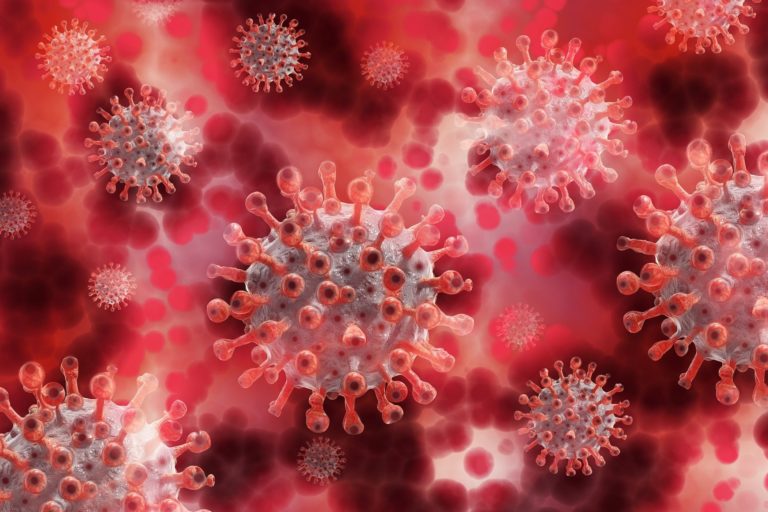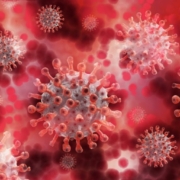
Impact of COVID-19 Pandemic on Eating Disorders
Impact of COVID-19 Pandemic on Eating Disorders by Margot Rittenhouse, MS, PLPC, NCC – Freelance Writer for Eating Disorder Hope
One of the most impactful triggers for disordered eating thoughts and behaviors involves the disruption in daily life. It is hard to believe anything in recent history has been as disruptive as the COVID-19 pandemic.
With millions of people afflicted or deceased, businesses closed, jobs lost, social interactions all-but non-existent, and entire countries around the world quarantined within their homes, life barely resembles the way it looked just 6 months ago.
These changes can be incredibly triggering for individuals vulnerable to, struggling with, or recovering from an eating disorder.
Dr. Cynthia Bulik, founding director of the UNC Center of Excellence for Eating Disorders, and Dr. Christine Peat, director of the National Center of Excellence for Eating Disorders, quickly noticed the potential this pandemic had to impact eating disorder relapse rates [1].
In fact, both reported that they saw a 30% increase in referrals to their program early-on as the pandemic struck the United States [1].
Not only are many people feeling triggered by the stress of current circumstances, but they are also isolated in their homes. Many people report increasing attempts to cope with food or disordered behaviors as a result.
Seeing these changes, Dr. Peat and Dr. Bulik, who both work as professors at the University of North Carolina, surveyed 1,000 individuals with eating disorder diagnoses from the United States and the Netherlands [1].
According to Dr. Bulik, survey results indicated that “three things stood out when it came to what was currently concerning people with eating disorders the most: lack of structure, living in a triggering environment and lack of social support [1].”
These surveys also showed that individuals with Anorexia Nervosa are “reporting increased dietary restriction and fears about being able to find foods consistent with their meal plan [1].”
Those diagnosed with Bulimia Nervosa reported “increases in binge-eating episodes and urges to binge [1].” Many respondents shared feeling fearful that their eating disorder would worsen due to the triggering events and urges.
For example, individuals recovering from an eating disorder may find grocery shopping in “average” moments to be challenging. Now, with certain brands selling out and the chaos of grocery shopping during a pandemic, that anxiety and fear may be increased.
Dr. Wierenga, professor of psychiatry at the University of San Diego, stated, “Isolation is a real concern. Our patients tend to socially isolate anyway. They have social anxiety. A lot of times, they’re depressed [2].”
As Dr. Bulik points out, “it’s almost as if some of the measures that we took in order to flatten the curve were tailor-made to make it more difficult for people with eating disorders [1].”
Even so, this new information on the specific concerns, urges, and triggers individuals are facing can help eating disorder treatment professionals provide more effective care during COVID-19.
For example, it is important for professionals to embrace conversations about how the pandemic and virtual services are impacting their symptoms and recovery. Dr. Bulik stated, “talk to each other about what’s working and what isn’t working so that you can really make the platform work for you [1].”
Additionally, professionals and clients would benefit from embracing the flexibility of the unknown and working within this to provide the most effective treatment in the current circumstances.
Dr. Bulik and Dr. Peat’s survey has provided us with more specific information regarding what exactly has become more challenging in the realm of eating disorders and eating disorder recovery during this pandemic.
Using this information to directly ask clients how they are experiencing these aspects can help create a more detailed understanding of their current challenges and more effective treatments.
Resources:
[1] Kehres, E. (2020). UNC researchers study effects of eating disorders during pandemic. ChapelBoro.com, retrieved from https://chapelboro.com/news/health/unc-researchers-study-effects-of-eating-disorders-during-a-pandemic.[2] Huff, C. (2020). For people with anorexia, COVID-19 presents new challenges. American Psychological Association. Retrieved from https://www.apa.org/topics/covid-19/eating-disorders.






